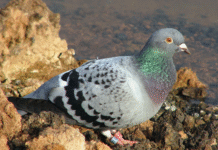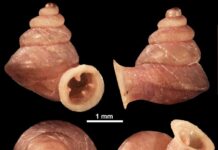
THE fifth edition of the Mustafa Prize was hosted in Isfahan, Iran, this year to celebrate scientific excellence of Muslim scientists from around the world.
More than 100 scientists from 57 countries were present at the Chehel Sotoon Palace in Isfahan – a city famous for its Pero-Islamic architecture.
The award was established in 2012 for the first time to epitomise scientific excellence and has been held biennially since 2015. It celebrates scientific breakthroughs in the Islamic world.
The awards this year saw five scientists including one from Malaysia celebrating their stardust moment.
Prof Murat Uysal from Turkey was awarded a prize for his excellence in optical wireless communication technology.
In his speech during the award ceremony, he said he believes that optical wireless technology has the potential to transform the telecommunications industry.
“We are pushing our boundaries to make the world more interconnected and bridge the digital divide to bring economic and education opportunities to the global community.
Prof Samia J. Khoury of Lebanon received her award for research in the field of medical sciences and technology.
She was especially cited for her work in Novel Approaches for the Care of Multiple Sclerosis (MS) patients.
She said: “For young scientists, the two qualities that one must embrace are persistence and resilience to achieve goals.”
Prof Ahmad Fauzi Ismail from Malaysia (UTM) received his award for the development of membrane technology applications in relation to wastewater treatment.

Professor Ahmaed E. Hassan of Egypt earned an award for developing mining software repositories which he has been working on in the last two decades.
Iranian scientist Prof Omid C. Farokhzad who won an award for his research in the field of nanomedicine.
He said he would be directing the monetary value of the award totaling U$D500,000 toward establishing an endowment to support the Mustafa Young Investigator Award annually.
“I believe that science and medicine should not have geographic boundaries and that Islamic scholars have contributed to their field of sciences besides medicine,” said Omid.
All award winners were given U$D500,000, which is financed through the Mustafa Science and Technology Foundation. They were also awarded the Mustafa Medal and an Honorary Diploma.
Promoting scientific synergy
On the sidelines of the Mustafa Prize awards ceremony, the 9th Science and Technology Exchange Program (STEP) was also hosted.
Shaghayegh Jaghjooy Javanmard, chair of the 9th STEP said: “Muslim scientists such as Ibn Sina, Albiruni, and Ibn Rushhave played a great role in the development of science during the Islamic Golden Age from the 8th to 14th century. They paid attention to science from a social perspective and were open to new ideas.”
Professor Dr Iqbal Choudhary, coordinator-general of Pakistan’s COMSTECH (Standing Committee for Scientific and Technological Cooperation of the Organisation of Islamic Cooperation) during his keynote address echoed the thoughts of Shaghayegh, saying: “Science responded to human needs in the past and will respond to human needs in the future. Within 11 months over 100 vaccine candidates were developed against Covid-19 during the pandemic period. “
He also pointed out that: “Artificial Intelligence has the capability to overcome physical limitations beyond human imagination. Thus, we need to reap the benefits of these emerging technologies.”
During a panel discussion, Prof Dr Peiman Mosaddegh from Isfahan University of Technology pointed out that funding, brain drain, political instability, lack of research infrastructure and training gaps are the few challenges that scientists face in the course of their work.
He further suggested that we need to explore international collaboration such as Women in Science Initiatives and Islamic Development Bank Funding to strengthen the global scientific network.
He also pointed out that a few successful cases of Islamic countries that have established international research centers are Synchroton-light for Experimental Science and Applications in the Middle East (SESAME) in Jordan, The Abdus Salam International centre for Theoretical Physics (ICTP) in Italy, and ECO Science Foundation (ECOSF) in Pakistan.
Mozhgan Yazdianpour, Director of International and Scientific Cooperation for Isfahan Science and Technology Town who was also present said: “Apart from challenges, accelerating homegrown technologies allows us to address the bottlenecks at the grassroots level.”
“Our success story is, that we have 700 start-up companies in Iran, and 9000 people are working within. All the startups are owned by our Iranian graduates and we turn them into technopreneurs by nurturing them to innovate. We help students with technology-based ideas that will be commercially viable,” she added.
Some of the highlights of the programme during the event, besides the scientific presentations, were roundtable meetings, and visits to laboratories and technology centers.
A visit was also organised to the Isfahan University of Technology.
The event was attended by participants from Universiti Putra Malaysia (UPM), Universiti Kebangsaan Malaysia (UKM), UniversitI Teknologi Malaysia (UTM), Universiti Teknologi Petronas (UTP,) Sunway University and Malaysian Biotechnology Information Centre (MABIC).















